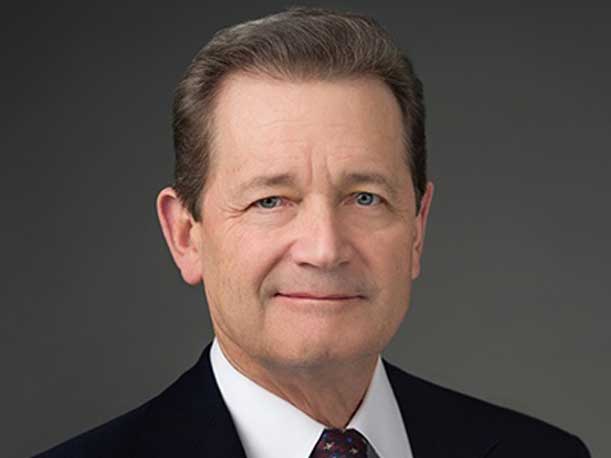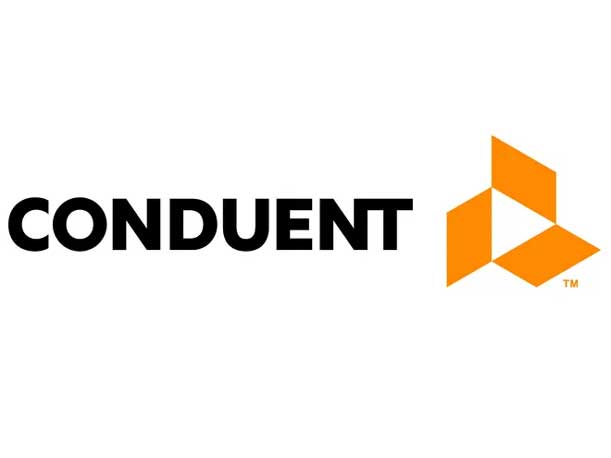Conduent CEO On A ‘Leaner And Smaller’ Future And Why It’s ‘Insulated’ From A Recession
‘Our foundation was really what we focused on for the first three years,’ says Conduent CEO Cliff Skelton. ‘What we found when we got here after the spin from Xerox is [there] was a little bit of underinvestment in the company. And so we had to spend a lot of time getting that squared away before we can do anything unique.’

Cliff Skelton is ready to tell Conduent’s story.
The Florham Park, N.J.-based solution provider spun off from Xerox in 2017 and “didn’t really have an identity,” Conduent CEO Skelton told CRN.
“Where we were was a no-name spin-off from Xerox that was under-invested in,” he said of the company, ranked No. 22 on CRN’s 2022 Solution Provider 500 list. “It had a goofy name that didn’t have an identity that had so many products and services that nobody really knew what we did.
“What we found when we got here after the spin-off from Xerox is [there] was a little bit of underinvestment in the company,” he added. “And so we had to spend a lot of time getting that squared away before we can do anything unique.”
Conduent, with about 62,000 people on its payroll, hasn’t had it easy since the spin-off. The company’s stock is off more than 37 percent just in the past 12 months to $3.46 on Monday. Last year, Conduent reported $3.8 billion in revenue, down 6.8 percent from $4.1 billion in 2021. The company reported a net loss of $182 million in net income for 2022, an increase from the $28 million reported in 2021. In 2023, the company said it is expecting to see $3.7 billion to $3.8 billion in revenue.
But over the last three years, the executive team focused on the company’s foundation, honed in on their products and services and sculpted a dynamic employee base.
“We were growing at negative eight percent four years ago,” he said. “We’re just at the surface of growth right now and we expect to grow between three and four percent over the course of the next three years.
“Now we’re in a place where what makes us stand out is we have technologies that, frankly, the competition doesn’t have,” he added. “Once we’ve whittled down our portfolio and focused on those key technologies and talked about them more to our clients, Conduent is going to stand out.”
One key technology is its new digital integrated payments hub that enables businesses to access secure, faster and cost-effective options to send, request or receive payments. Through BNY Mellon’s infrastructure, the payment hub speeds up refunds, rebates and overpayment remediations from up to as 10 days down to minutes.
“There are all kinds of companies like ours that have transportation businesses or government or commercial businesses, and then there are all kinds of fintech companies that are connected to the real time payments network. But there are no companies that have both of those together other than us,” Skelton said.
CRN spoke with Skelton to discuss Conduent’s differentiator, challenges, ChatGPT and what’s to come for the solutions provider.

I want to go back to when you did our CRN 2023 CEO Outlook. You said that your client needs and environments are different from a year ago. How have they changed?
I think clients are a little more reluctant to immediately buy. They’re keeping a little more dry powder on their purchasing. They’re still buying, they’re just being a little more cerebral about it and taking a little more time. I’ll give you an example. We’re bidding on a big transportation contract right now. We’ve been working on it for two years. We thought we would be awarded it [already, but] they had one more extension. Everybody’s taking just a little bit more time. I think interest rates are spooking people. They’re trying to figure out where the dust is going to settle, and so that’s slowing things down a little. I would say the other thing is a [there are] lot more opportunities in the call center business. People are willing to outsource a lot more voice, email and chat to third parties like us when the economy gets tough. They’re trying to save money and be more efficient. Those are the main things I would say that are unique from a year ago.
Do you think they’re reluctant to buy because of the current economic landscape?
I wouldn’t say they’re reluctant to buy, they’re just taking more time to buy things. Our pipeline, especially in the government [and] public sector space, is just as strong and probably stronger than it’s ever been. The timeline for inking deals is just stretched out a little bit longer, but the appetite is still there.

Do you think their needs will continue to change post-pandemic?
No, I think we have to see where the dust settles on the economy. The other thing I would say on the economic situation, and the buying appetite, is that the buying volumes are a bit down. It does feel like the economy is slowing, that inflation rates and the pace of things are slowing subtly, and we’re seeing that in our consumer-facing environment.
Since we’re on that, how are you helping your clients position for a possible economic downturn?
One of the things we’re trying to do is utilize analytics. One of the things we’re trying to do is convince them that with our scale and some of our technologies, we can provide them with a lot more information that drives a lot more efficiency. But what our clients really want is they want to take care of their end customers, they want to save money and get more efficient.
In terms of a possible recession, is Conduent taking steps to prepare for a downturn?
No, we’re a little bit insulated, but we’re not immune. Typically when the economy turns south, the government spends more money. And when government spends more money, there’s more processing needs from companies like ours. When the economy goes south, commercial companies typically outsource more because they’re trying to drive efficiencies and save money inside their company. Like everyone else, we have our own efficiency models to take care of.

Aside from client needs, what is your clients’ biggest pain point right now?
It’s a difficult question because it depends on the sector. We have a public sector business and a commercial sector business. Within the public sector, we have state and local government and government subsidies and then we have transportation. In the transportation business, congestion management, emissions management, payments, efficiency and security and those mass transit systems are things that everybody’s focused on. In the government business, fraud and security are number one. That’s what they’re focused on right now. In the commercial space, it’s really efficiency and preparing for an economic downturn.
What can we expect from Conduent for the rest of the year?
We’re doubling down on this payments capability and we’re going to rationalize our portfolio, skinny it down and focus on the growth solutions. We’re going to be leaner and smaller, but not a lot smaller. We’re going to have more growth solutions, going to be more technology focused and we’re going to be doubling down on this payments capability.

What is your biggest challenge? What is something that keeps you up at night?
We have to find a way to make our portfolio, which is really diverse, leaner. Our growth solutions have to get more focused. Our solutions that are taking longer to grow, we have to consider other opportunities for them, either optimize or rationalize. While it doesn’t keep me up at night, it’s our number one mission. The second thing that we are focused on is capitalizing our new payments capability. While we know we have something nobody else has, it’s in the early stages of monetization. We’ve got to monetize that capability because nobody else has this solution. We’ve got to convince our clients that they’ve got something special here, and so we’re intently focused on that.
That's a perfect segue for my next question which is what do you want more of from your vendors?
The number one thing I’d say we need from our vendors in the technology space is help with implementations. We’re selling a lot of new capabilities and the number one achilles heel for companies like ours is the ability to implement and meet the timelines and the expectations of the clients that we’re selling to. We’ve got to get vendors to come in and feel like it’s their pain, just like our pain. Number two is we need our vendors to be part of this efficiency play with us and find ways, with us, to streamline our processes. The reason this company didn’t grow five years ago is because it couldn’t implement. When they sold, it could not implement and meet client expectations. That’s our number one mission right now from an operational point.

Where do you think Conduent will see the most revenue growth this year?
It’s pretty equally distributed across both public sector and commercial sector. But our businesses are very different. The growth rates that we see over the course of the next three years, for all three businesses, are going to be in the neighborhood of three to four percent. There’s differences though. In the government space, the margins are bigger but the clients take longer to onboard and offboard but they’re very sticky. In the commercial space, it’s about the same growth rate, but the margins are skinnier. However, the churn is higher. They come on onboard and off work really fast. One other difference is selling in the public sector is long and RFP driven. The commercial sector is much shorter and typically it comes from the penetration of our current portfolio.
Are you seeing growth in cybersecurity or cloud or anything like that?
Oh, we’re seeing a ton. Everybody wants to be in the cloud and they don’t even know what it means. When I was a CIO I used to say that cloud is just somebody else’s data center. It’s a scaled virtual data center but people love it because it’s got this catchy phrase. However, they do have increased security because there’s a lot of money spent in the public cloud, and they have scale. They have a lot more fewer outages, if you will, so the uptime is very high. We’re seeing a huge migration to the cloud. Virtually every new client we sign in the public sector space says, ‘I’ll buy from you but you have to go in the cloud.’
Number two is cyber is massive. Everybody’s focused on cyber and it’s become a ticket to play. It’s not something new, it’s just an expectation that you better have your act together and you better have all the certifications you need. If you come close to anything like a ransomware event, your reputation is ruined. So cyber is unbelievably important right now.

What are your thoughts on ChatGPT and how it can help businesses?
It’s the future. Everything that these OpenAI-type companies come up with… I mean three months ago nobody even knew what it was. It’s incredible how accurate it is. I don’t know where it’s going but I know it’s going to be huge. It could be the next internet. It really could. That’s how big this could be. But nobody knows how to capture it and corral it and figure out what to do with it, because it’s so powerful. We ought to be paying attention to it and figuring out how to be part of it and where it’s going, because it’s going to make somebody a lot of money. It’s going to power to companies, especially companies like ours, in ways we’ve never seen. And I’m a little worried about it because what’s it going to do to the call center business. What’s it going to do to other ways of transferring information, which is what we do for our end customers on behalf of our clients.
What makes Conduent better than the competition? What makes you guys stand out?
Where we were was a no-name spin-off from Xerox that was under-invested in. It had a goofy name that didn’t have an identity that had so many products and services that nobody really knew what we did, and really didn’t have an identity. So we’ve worked hard over the last three years on that identity. We worked hard on our foundation, we doubled our sales, we upgraded all of our talent, we fixed our culture and won plenty of awards for diversity, LGBTQ, women in the workplace, disabled people and veterans. Not just because it was the right thing to do but because it’s good for our company and it’s good for our people and our motivation.
Now we’re in a place where what makes us stand out is we have technologies that, frankly, the competition doesn’t have. Once we’ve whittled down our portfolio and focused on those key technologies and talked about them more to our clients, Conduent is going to stand out.
There are all kinds of companies like ours that have transportation businesses or government or commercial businesses, and then there are all kinds of fintech companies that are connected to the real time payments network. But there are no companies that have both of those together other than us. There’s not one that has an integrated payment setup that reaches straight out to our end users and an integrated payment service that reaches straight into the real time network. We can do that and we’re not a FinTech company. We have to double down and tell the story on all of that, and frankly we just haven’t been able to do that for the last three years. And that will make us stand out.